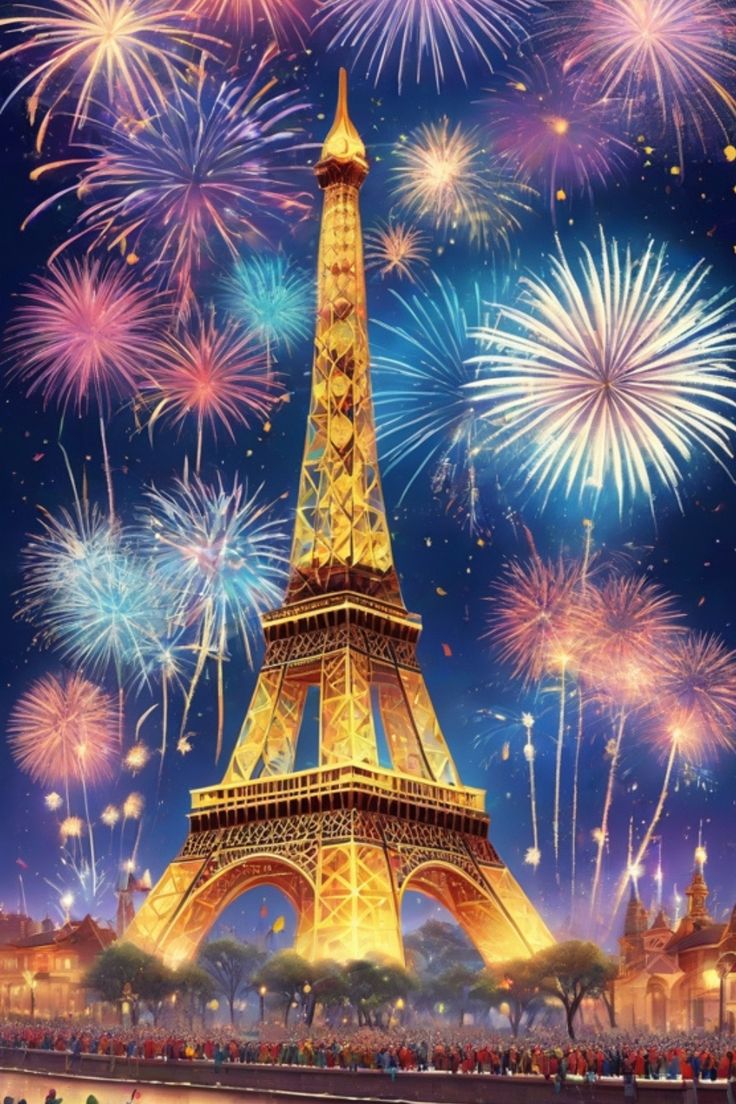New Year Day: 7 Positive Impacts and Celebrations You Should Know
New Year Day, celebrated on January 1st, marks the beginning of a fresh calendar year, and is one of the most widely observed global holidays. It’s a time for reflection, goal-setting, and festive celebrations. But there’s more to this day than just ringing in the new year with fireworks and parties. New Year’s Day holds deep significance across cultures and societies, and it has unique impacts on individuals’ daily lives.
What is New Year Day?
New Year Day is the first day of the year in the Gregorian calendar, the calendar most widely used worldwide. It marks the end of the old year and the beginning of the new, serving as a transition point where people take stock of the past year’s achievements, failures, and experiences. It is often seen as a time to refresh and reset for the upcoming year with new resolutions and goals.
While it is a public holiday in many countries, New Year’s Day is more than just a day of rest. It’s a global occasion celebrated in various ways, reflecting diverse cultural practices and traditions. The day is universally associated with a sense of hope, renewal, and the possibility of positive change.
History of New Year Day
The tradition of celebrating the new year dates back to ancient civilizations. The earliest recorded celebrations took place in Babylon around 4,000 years ago, where the new year was marked by a celebration during the vernal equinox (around March 20th or 21st). The Roman Empire later adopted January 1st as the official beginning of the year, after reforming their calendar under Julius Caesar in 45 BCE. This marked the beginning of the Julian calendar, which was later replaced by the Gregorian calendar.
The New Year’s Day holiday has evolved over the centuries, becoming a time for family gatherings, festivities, fireworks, and personal reflection. For many people, it serves as a cultural event, with local traditions influencing the way it is celebrated.
7 Facts About New Year Day That Impact Daily Life
- Cultural Significance
New Year Day holds great significance in various cultures. In China, it is celebrated as Chinese New Year (also known as the Lunar New Year), marked by colorful festivals, family gatherings, and traditions. Hindu communities celebrate the start of the new year according to their lunar calendar, and Jewish people observe Rosh Hashanah, their New Year, in the fall. Despite differences in timing and customs, the universal theme of renewal and new beginnings ties all these celebrations together. - The Impact of New Year’s Resolutions
One of the most widely practiced traditions on New Year’s Day is the setting of New Year’s resolutions. People around the world make promises to themselves to improve their health, career, relationships, or personal development. These resolutions often include goals like exercising more, eating healthier, saving money, or learning a new skill. For many, the beginning of the year represents a chance to make positive changes in their lives. - A Time for Family and Friends
New Year Day provides an opportunity to spend quality time with loved ones. Many people gather for meals, parties, or simple family gatherings to mark the occasion. It’s a day to reflect on the year gone by, to appreciate the support of friends and family, and to celebrate together the joys and challenges of life. It reinforces the importance of community and human connection in a world that can sometimes feel divided. - Economic and Social Impact
New Year Day has a major economic impact globally. It is a day of major sales, with many retailers offering discounts, especially in countries like the United States, where shopping on this day is a common tradition. This day also has an economic influence due to tourism, as cities around the world, like New York with its iconic Times Square Ball Drop, attract millions of visitors who contribute to local economies. From the tourism industry to restaurants and hospitality, New Year’s Day boosts economic activity in many sectors. - A Day for Reflection and Gratitude
New Year Day encourages personal reflection and introspection. Many people use this time to look back on the previous year, evaluating their accomplishments and challenges. This period of reflection often brings feelings of gratitude for the experiences and people in one’s life. It also serves as a reminder of the importance of self-care, mental health, and personal growth. - Global Traditions and Festivities
New Year Day is universally celebrated, though the way people mark the occasion varies by culture. In Spain, it is customary to eat 12 grapes at midnight to ensure good luck for each month of the coming year. In Japan, people clean their homes and celebrate with a traditional meal known as osechi-ryori. Fireworks displays, parades, and special events are held worldwide, making it a vibrant day of celebration. - The Symbol of New Beginnings
New Year Day is a symbol of new beginnings, offering a clean slate for everyone. Many people believe that the actions they take on New Year’s Day can set the tone for the rest of the year. For some, it’s a day to begin new projects, start new habits, or simply take a break from the busyness of life to recharge and reset their mindset for the future.
How is New Year Day Celebrated?
New Year Day is celebrated with various traditions and festivities across the world. While some cultures celebrate with fireworks and parties, others focus on religious ceremonies, family time, or peaceful reflections.
1. Fireworks and Festivities
In many cities, such as Sydney, London, and New York, elaborate fireworks displays light up the night sky. People gather in public spaces, watching the grand celebrations unfold. It’s a visual spectacle that draws millions of spectators every year, marking the moment of transition from one year to the next.
2. Parades and Festivals
In some places, such as Pasadena, California, the Rose Parade takes place on New Year’s Day, showcasing flower-covered floats, marching bands, and equestrian units. In Scotland, the Hogmanay celebrations are an important part of the New Year tradition, often involving singing, dancing, and the singing of “Auld Lang Syne” as a way to bid farewell to the past year.
3. Religious Observances
For some, New Year’s Day is a deeply spiritual occasion. Christians may attend church services to mark the new year with prayer, asking for blessings and guidance in the year ahead. In other cultures, it may be a time for spiritual renewal, reflection, or making offerings for prosperity and good fortune.
4. Quiet Reflection and Resolutions
For others, New Year’s Day is a more quiet, personal time for reflection. People take the day to relax, meditate, and think about the goals they wish to set for the coming year. Many choose this day to start a new fitness routine, read, journal, or engage in other self-improvement activities.
The Significance of New Year Day
New Year Day is much more than just a holiday; it’s a time of renewal, hope, and unity. For individuals, it’s an opportunity to start fresh, set goals, and strive for personal growth. On a societal level, it encourages people to come together, celebrate their shared humanity, and express gratitude for the experiences and connections they’ve made.
It’s also a reminder of the importance of reflecting on past actions and making plans for the future, whether that involves improving oneself, strengthening relationships, or contributing to the community. New Year’s Day represents optimism for the future and the belief that we can make positive changes in our lives and in the world.
FAQs about New Year Day
Q: Why is January 1st celebrated as New Year’s Day?
A: January 1st was chosen as the official beginning of the new year after the Gregorian calendar was introduced by Pope Gregory XIII in 1582, replacing the Julian calendar. This date was symbolically significant for many cultures and was later adopted globally.
Q: How do different cultures celebrate New Year’s Day?
A: Celebrations vary widely, from fireworks and parties in Western countries to religious ceremonies and traditional meals in Asian cultures. Some cultures, such as the Spanish, eat 12 grapes at midnight, while others, like the Japanese, clean their homes and enjoy special foods.
Q: What are New Year’s resolutions?
A: New Year’s resolutions are personal goals or promises people make at the start of the year, often focused on self-improvement, such as getting healthier, learning new skills, or being more organized.











It is really a nice and helpful piece of info. I am glad that you shared this helpful information with us. Please keep us up to date like this. Thank you for sharing.